ON MESSAGE: MATT LAMBERT and ERIKA LUST
|VICTORIA CAMBLIN
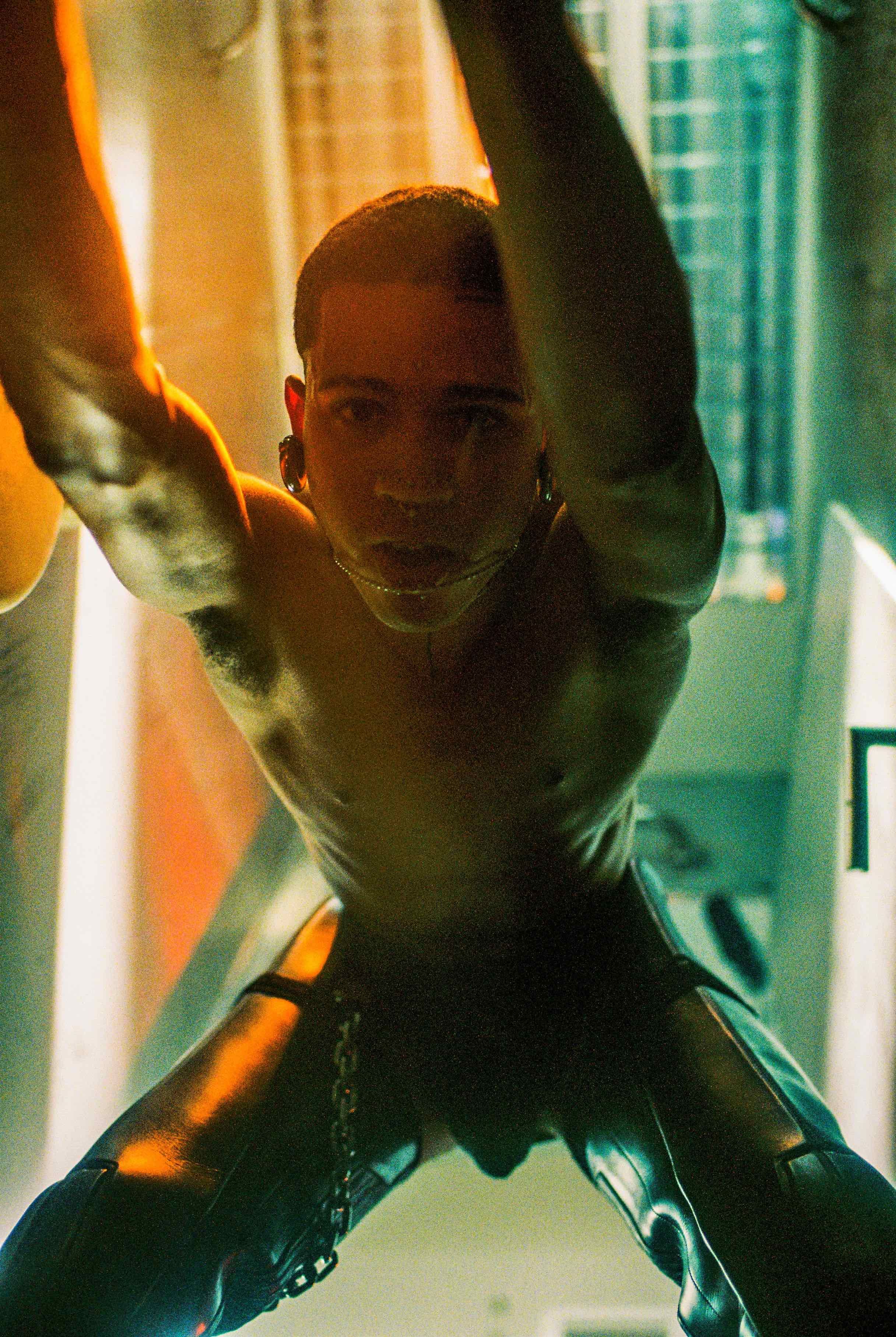
If I had to assign a Netflix-style genre subcategory – à la "Critically Acclaimed Emotional Father-Son Dramas Based on Books" – to Matt Lambert's recent erotic work, it would be "Fuck First, Then Meet." The cruise cultural adage that informed his collaboration with Ludovic de Saint Sernin and Pornhub, covered here earlier this year, features again in Klappe, a collaboration between Lambert's Vitium studio and acclaimed regent of indie porn Erika Lust. The x-rated short, which premiered this fall at Berlin's 17th annual Porn Film Festival, is set in the city's disinhibited nightclub scene. Stars Billy Vega, Tiresia, Kaiden Ford, Cain, and Axel Rubberax meet not in the darkroom but in the even more ubiquitous bathroom stall, where they explore the potential of the space's – and each other's – architecture, all to a soundtrack by LSDXOXO. Styled by Billy Lobos, the result is an artful, striking, and approachable vignette of queer intimacy shot through the prism of Berlin's at times misunderstood sensual underground.
The film is Lambert's first to be distributed via XConfessions, an award-winning, community-driven porn platform that is just one of four online cinemas run by the prolific Lust, whose Barcelona studio now employs more than 50 people. The director, author, producer, and BBC top 100 "Most Influential" woman of 2019 is as passionate about sex in research, advocacy, and education as she is about sex on film – an ethics shared by Lambert, whose work double-tasks as a kind of queer sociological archive. Porn, they agree, must be talked about, as a mass media that accounts for "one third of the internet," per Lust, and as a major but under-studied industry that operates outside of the limelight occupied by mainstream productions. Platforms devoted to culture and technology have also largely ignored the genre, despite its function as a "canary in a coal mine" for understanding how contemporary content is made and consumed. In our conversation following the release of Klappe, however, the medium of porn – to pervert the Marshall McLuhan cliché – was the message.
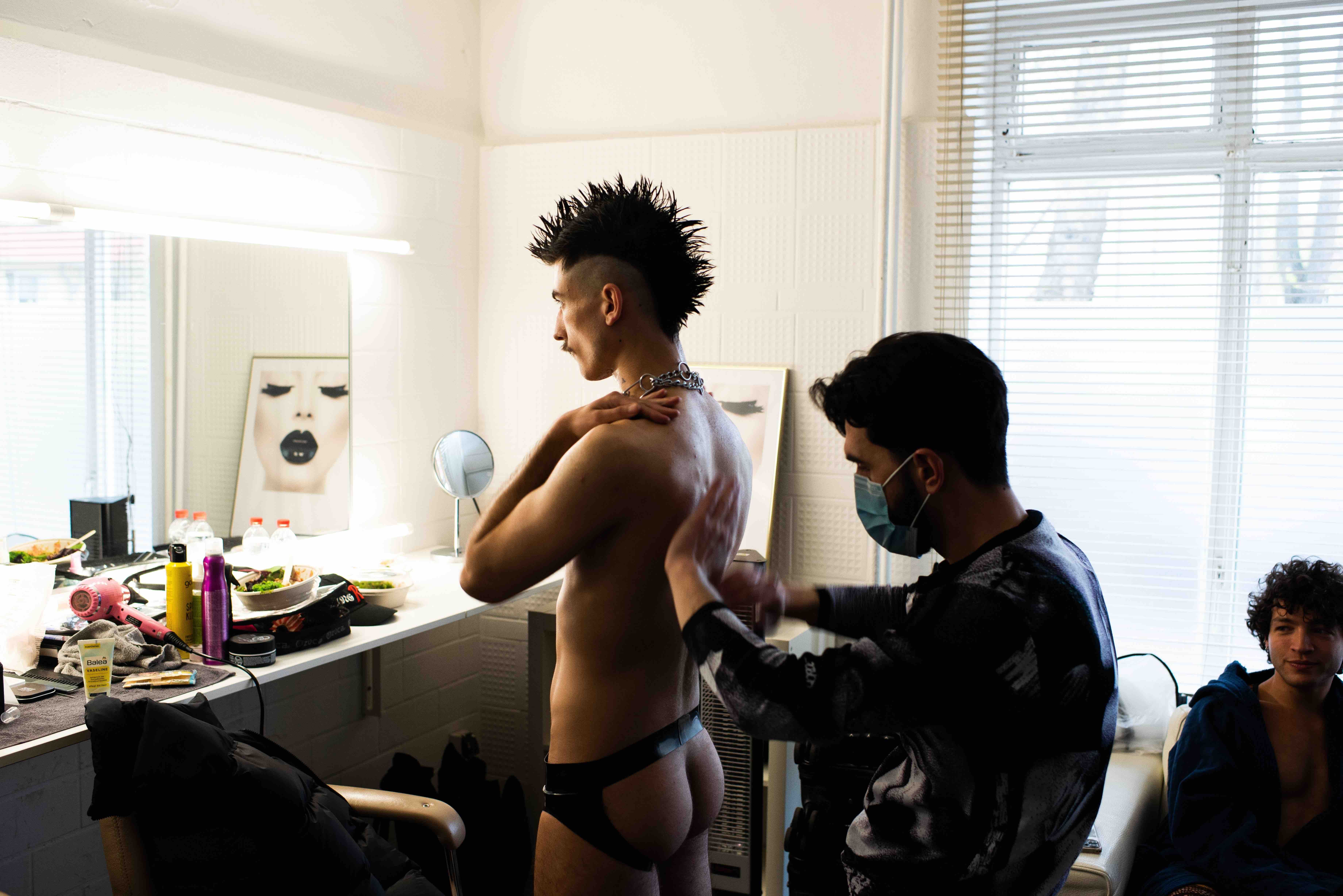
Victoria Camblin: How did you guys come to work together?
Matt Lambert: I had a lot of friends that were intertwined within Erika's world. There’s Paulita, a performer and a producer/director who is very involved in the Porn Film Festival. There's Bishop Black, an old friend who is also a performer with Erika. There's Popo Fan, a filmmaker, who has a small cameo in a movie I just did. Eventually I was just like, "We have to fucking do this, otherwise it's never going to happen."
Erika Lust: There really is a community that has formed within independent adult cinema. When I made my first short film in 2004, there were a few names out there, but it was not a community. Over the years I have seen it grow and seen more people getting into this space from outside the adult industry. Erotic artists in the cabaret world, commercial filmmakers, photographers, art directors – they all started to become interested in independent adult cinema. They could see it is different from what mainstream porn represents.
ML: In an industry almost exclusively driven by dudes, there was a little revolution led by Erika and other female directors whose work was shifting the gaze. Then in the queer spaces, there was another little revolution led by people like Bruce LaBruce. I met Bruce probably 15 years ago, and I kind of got roped into assisting him on an X-rated music video thing. I was like, "Sure, I'll help." But then suddenly thought, "Oh my god, I'm filming porn." That was quite a heavy thing. The project was in good taste, but I still didn’t want to put my name on it. I had a commercial career in New York, and I was terrified of jeopardizing that. That’s why most pornography is not made by filmmakers. People who have cinematic training don’t want to blow up their careers.
EL: Because many times it does! It is very brave to dare to do it. You have to remember that this is still a very stigmatized space.
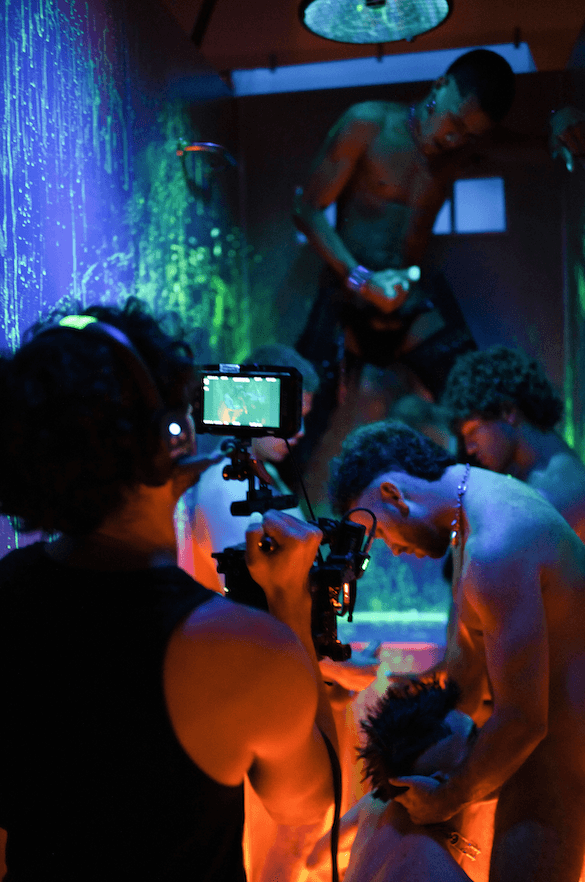
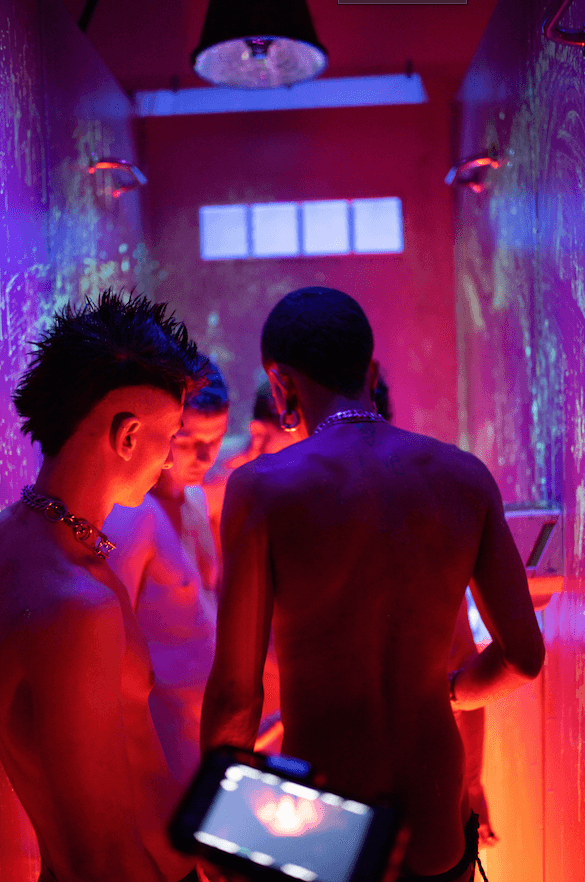
ML: I remember having a drink in Berlin with Bruce like 11 years ago and he told me something along the lines of, "Don't do anal. You have to tip toe around it. You can have eroticism, but as soon as you put a penis in an ass, that’s the thing that can blacklist you.”
VC: What made you start putting your name on the erotic work?
ML: When I started putting studio-level X-rated work out in the world, more or less five years ago, I kind of just said, “Fuck it, let's put the name on it.” I didn’t want to have a division between who I am as an artist, who I am as a commercial filmmaker, or who I am as a creative director. I also felt that if I was going to talk about how the industry needs to evolve, I had better put my money where my mouth is.
EL: That’s what will get others to dare to fight against the stigma – there needs to be visibility. I got my Instagram account banned this year, but not because I was posting explicit images. I would never do that. I know exactly what the rules are. You can put highly sexist images of a guy showcasing an award on a woman's ass, and that image is fine with Instagram. But as soon as you have two people naked, romantically intertwined, kissing, then it's not allowed anymore.
ML: I've been shadow banned for three years now. It hurts people’s careers.
EL: It does, because you have to use Instagram to get the word out. I did a TED Talk recently. It was up on YouTube for four days, then YouTube decided to censor it. Now the only way to watch it is to verify you are over 18 years old. I'm just talking about porn; I’m not showing it. There are unrestricted TED Talks about porn, but where the speaker is against it. Those people are allowed to talk about it. If I want to do an analysis of the industry and how it works, it's not okay.
VC: I wonder if talking about porn is more dangerous to its detractors than the porn itself. Artists need to be able to share their work, and the platforms you can use to do that are increasingly limited.
ML: Which is why performers, many of whom are sex workers, spell words differently and create these codes with what they write on Instagram. You have to use a corn on the cob emoji instead of writing “porn.” Everyone has to find ways to communicate. Once I posted, "Come to this book signing and buy a copy of this new book." There's sexual content in the book, but I just showed the cover. The response was still that I was selling pornography, therefore prostitution, and so on. It is not about the content of the images. It’s about implication. You just need the implication of pleasure – you don’t even have to show it. It’s like Minority Report. Nothing has happened yet, but if a hand looks like it might touch a butt, it’s going to be pre-censored.
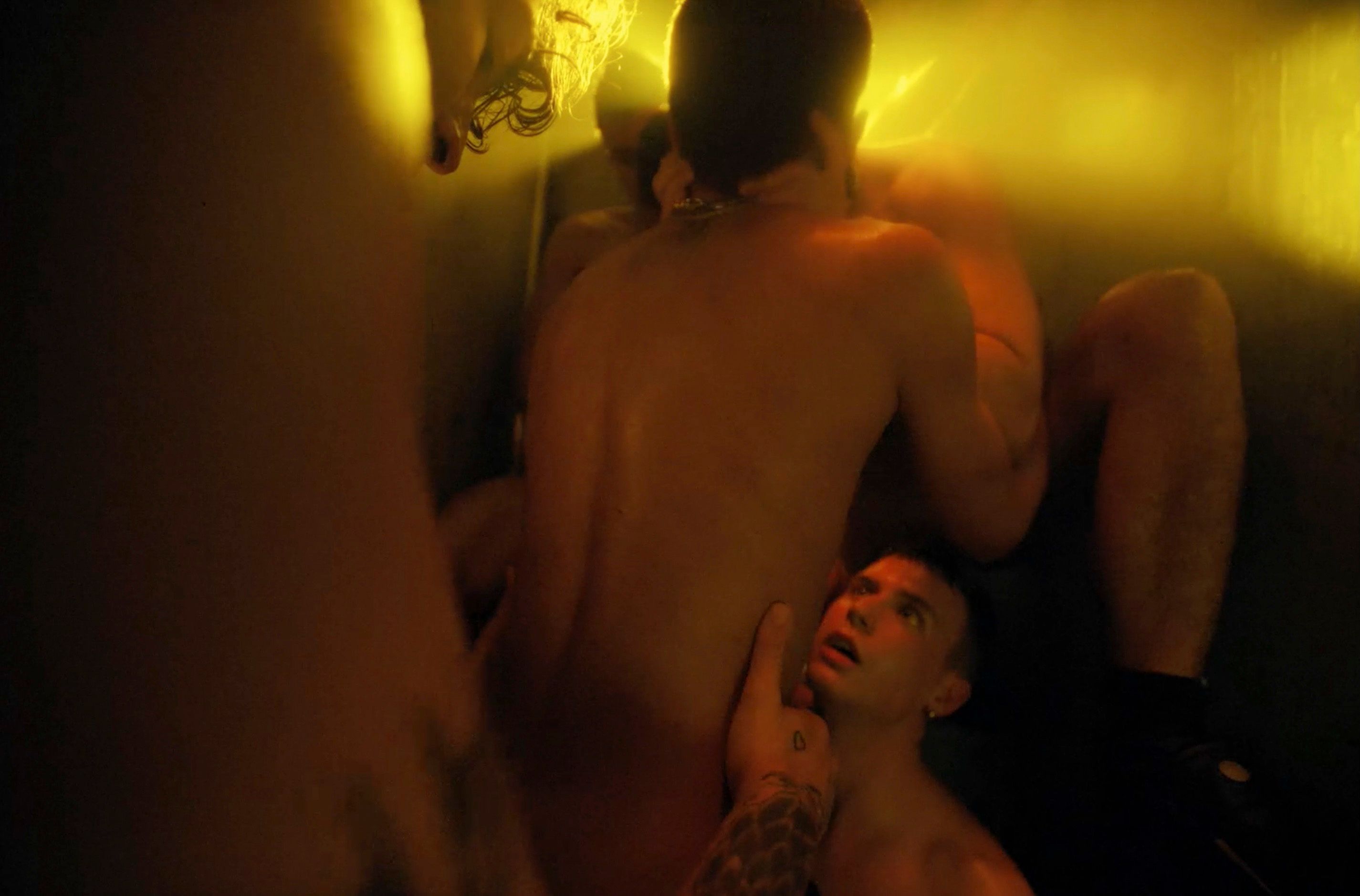
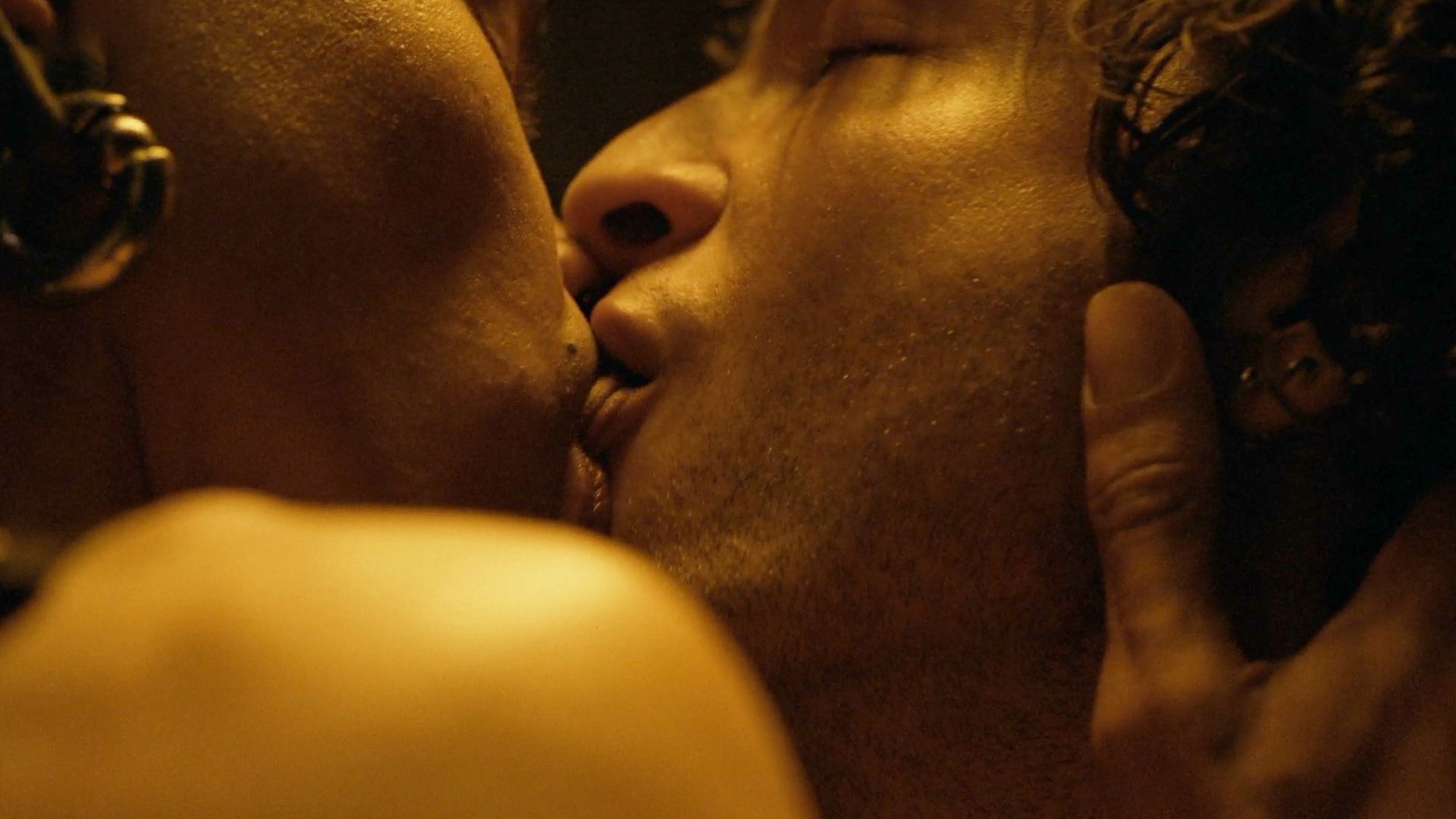
VC: What about the old advertising adage, “sex sells”? It seems like the implication of sex is “allowed” in some circumstances and not others. Is it about who the producers are, where the gaze is coming from?
EL: What you are allowed to express definitely has to do with who you are. I have sent work to film festivals and been sent back my fee in two minutes, with them saying, "Hey, sorry, we cannot accept your kind of film." They wouldn’t have had time to watch it to see if it's adult or not. I am seen as a pornographer, despite being a filmmaker, a mother, et cetera. I'm not allowed to exist in that space because of who I am. Then you have other filmmakers who are welcomed because they are from the indie space, so they can express sexuality without problem.
It’s important to consider mainstream porn and how big all the tube sites have become. They are mass media today. They have a huge impact in the world we live in. And one of the reasons that they have become so big is that porn and sexual expression are banned in all other places. If we cannot allude to it on Instagram and we cannot talk about it on YouTube, then the only space we have to express sexuality is pornography. What’s crazy is who is deciding these rules: a bunch of tech guys in Silicon Valley with their “silicon values.”
VC: Are “silicon values” the reason traditional values are “back” in a big way? People, including or maybe especially young people, seem more conservative than they were 20 years ago.
EL: It’s certainly very polarized. The problem with the impact of social media is that people’s vision is increasingly limited to what a set of white, heterosexual guys want them to see. The internet isn’t about being able to see other people's opinions anymore. If I look at my little bubble and all the wonderful people I have around me, it doesn't seem like a conservative world. It seems like we're opening up and diversifying. When I go outside and start seeing the world as it is, it's clear that conservatism is on the rise. It's quite fantastic in my little bubble.
ML: Same. Mine gets more interesting every day, expanding and making space for new energies coming in. But where there's progress, there's going to be backlash. Look at the Civil Rights movement in America. The moment there started to be an inkling of change, people got fucking terrified. Now look at what happened in Colorado Springs this year. Politicians are literally telling people that drag queens are pedophiles who are going to go into schools and come after your kids, and saying that people need to be armed. There is a direct relationship between that discourse and the terrorist attack. This is not just a porn conversation – it’s bigger than that. But porn happens to be a big part of this polarization because it represents “the liberal agenda.” The funny thing? Everybody watches porn.
VC: It’s like there is an adult media exceptionalism. Shouldn’t we all just see the relationship of porn to real life sex as we see the relationship of any Hollywood movie to real life? Most people don’t leave a movie theater expecting their mundane experience to mirror what they saw in Guardians of the Galaxy or the latest Almodóvar or whatever.
ML: People have the ability to take film and break it into subgenres – this is a documentary, this is comedy, this is fantasy. Porn just becomes porn. Asking someone “do you watch porn?” is like asking someone “do you listen to music?”
EL: That's a good one. What’s difficult from my point of view is that I both love and hate porn. I feel ambivalent about it. It can bring out our spirit and help us investigate and understand ourselves and other people. It can open up our sexuality, it can inspire us, and obviously it can give us pleasure. But most of the porn out there is transmitting values that have nothing to do with what I believe is a healthy sexuality.
ML: And just as there are all these ranges of cinema, there are all kinds of spectrums of porn. You can go have a tasting menu at a little Michelin restaurant or you can go and eat a bunch of McDonald's. The reality is, though, chances are the stuff that's not so ethically produced is also not the best for you. And if it's cheap, and it's fast, and it’s everywhere, it's probably not ethically made.
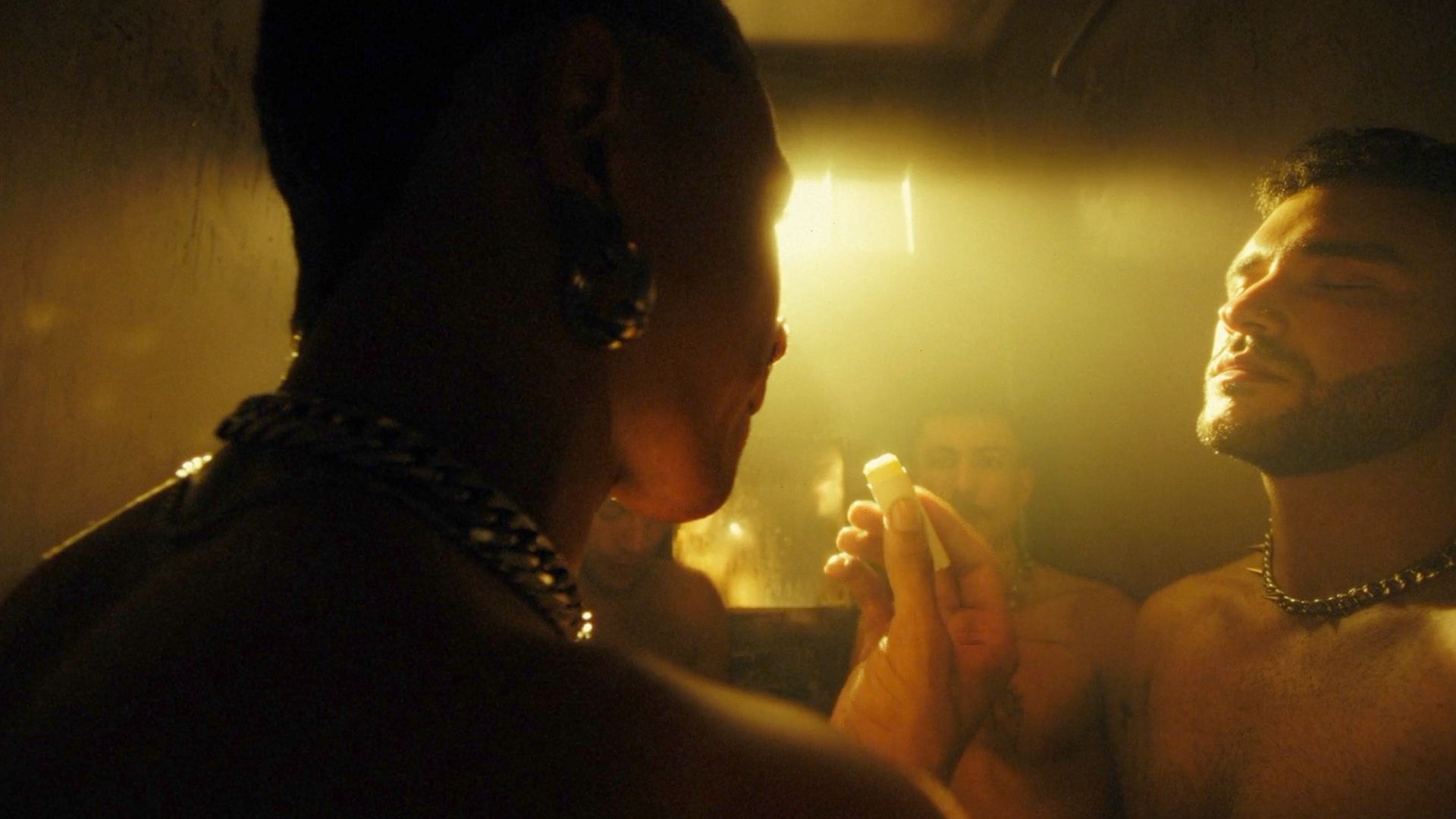
VC: It seems the main difference is we’re consuming these other things out in the open. You’re there in line with other people; you can read reviews and ingredients lists. The occasional McDonald’s still hits, though.
ML: We all love to get drunk and come home and pig out on some fast food alone, right? But here you have this huge capitalist endeavor with a dark curtain around it. The budgets are so low for some of these “fast” porn sites, and people are trying to survive. If you have two grand to do a scene and you have to pay the model, before you know it, it's one guy and a camera, one person editing. It becomes this rat race of just trying to make shit, and it’s a race to the bottom. When do you even have time to think about the ethics or sustainability of the content you're making?
Conversations like the one we’re having happen so rarely. Erika is one of the few people talking about this. We’re in the luxurious position of getting to muse about these things. We have the privilege of financial stability and a platform to do this. That’s not the reality for a lot of people producing or performing in this work. I talk to performers and they're like, "I love all these things you're saying, but I've got to fucking go and do this scene for 500 bucks because I need to pay rent."
EL: As Matt said, most porn companies are not transparent at all. They have a postbox somewhere in Nevada or wherever they don't have to pay taxes. They don’t show their faces, they don’t tell you their real names, and they don’t do interviews. They don't want to be responsible. What most people don't know about the porn industry is that it's basically run by one giant company, Mindgeek, which owns most of the free tube sites and many of the pay sites, too.
ML: They own a lot of studios as well.
EL: Exactly. They bought up other production companies and lowered the budgets for the filmmakers and for the performers. Of course, it wouldn't work if the consumers were not there. What people need to realize is that if you are watching porn, if you are a consumer of porn, you are part of the porn industry.
VC: If you have access to an internet connection, you’re “in porn.”
EL: Yes. And you can vote with your time, with your money, with your values. We really should talk about responsible consumers in the same way we talk about them in the food industry. People are starting to educate themselves, and many don't want to be part of a system that is not interested in good conditions for animals or reducing emissions. I became plant based five years ago, and it was a revelation. The same thing needs to happen with porn.
VC: Now that I think about it, the ethics of media production in general – whether that’s magazines, commercial campaigns, or any digital content, pornographic or not – aren’t questioned as much as they are in other industries. Maybe occasionally with the big streaming sites hiring non-union labor or forgoing safety rules on set. Calling for the “ethical production” of culture media from within a culture media outlet might be even harder to imagine than an open conversation about porn.
EL: We are talking about it with big fashion, big pharma, big tech, et cetera. We know big porn exists. If you are a consumer, what model do you want to stand by?
ML: To go back to the Hollywood comparison, independent cinema is where the conversations that lead to change start. That's the gestation place, before Hollywood starts to pick up on those cues. The same goes for independent porn spaces. A performer might do an indie scene then rock up to another set and be like, "Hey, let’s do it this way now." You could easily have a think tank or a panel discussion to talk about reforms in fast food or fast fashion. Having a summit to discuss porn would mean asking experts from other fields to acknowledge that they’ve watched it. We don’t have the same means to talk about it.
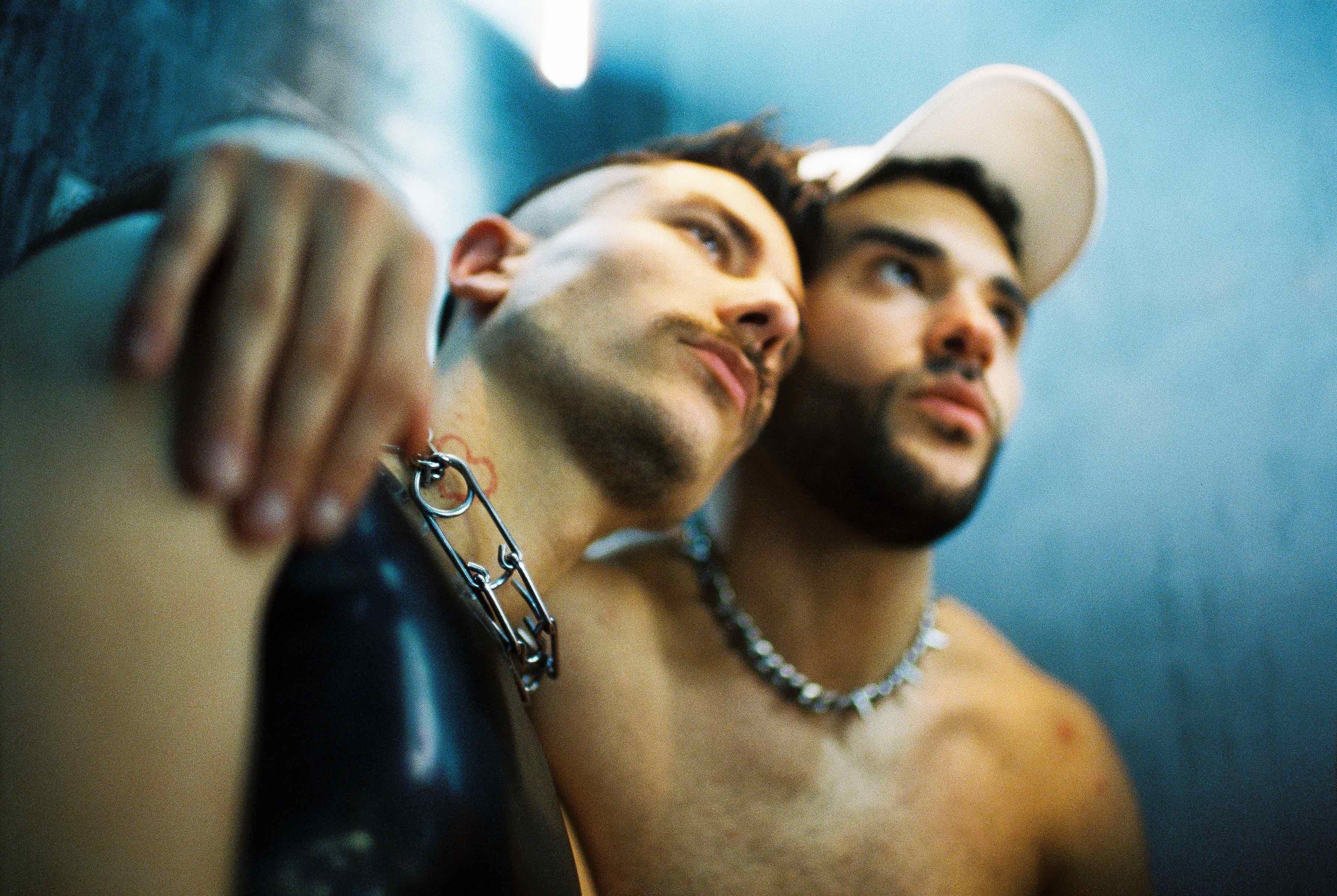
VC: Independent media, people writing about culture and tech – we could give a better platform to these conversations. Based on my conversations with Matt, I think porn is a barometer for what’s happening in other areas of digital and cultural production.
EL: People are not open with what they want and what they consume. That impacts problems of consent, too. Again, porn is a mass media. We cannot ignore one third of the internet. And porn literacy needs to be a part of sex education.
ML: Education is important because you can police the internet to a certain extent – but you really fucking can't.
EL: With the free tube sites online, it's out there for everyone, of any age. In the UK, they tried this age ID system, but these initiatives are problematic because they endanger our privacy. It’s very hard to control the circulation without putting everything behind a paywall, which isn’t happening. If people decide to consume ethically, if they decide to pay for porn, the performers and the crews will be valued and able to live on the work that they are making.
ML: Making it about age is also difficult because you could have a 16-year-old who is an educated viewer and a 40-year-old who is not and cannot responsibly engage with porn. This idea that maturity comes at 18, without any sex education, doesn’t help.
EL: Neither does the idea of “porn addiction.” Of course, it can be addictive, but so can sugar.
ML: Or Netflix.
EL: The only answer we have is education and investing in porn literacy. Recent studies show that some children are starting to watch porn at eight years old, It’s rare, but that is when some young people encounter porn on the internet now. At 12, already 50% of kids have watched it. We have a project online called thepornconversation.org that is meant for educators and parents to teach them how to talk about porn with kids. As a parent, the only option we really have is to have the porn conversation with our kids.
VC: “The porn conversation” – the “birds and the bees” of 21st century media consumption.
ML: All you can do is help people make better decisions and be more responsible. When people stop buying hamburgers, McDonald's has to come up with alternatives. Why else would they have plant-based things?
VC: All this puts a lot of pressure on the consumer to choose ethically. There are like three giant companies are responsible for 99% of bad practices, emissions, deforestation, and so on –and we are asking individuals to change their lunch orders. Also, it’s harder finding the content you’re looking for online than it is finding what you want in a supermarket. We’re all subs to the algorithm. You get the same stuff pushed to you over and over even though it has nothing to do with your search terms.
EL: I would like to be able to buy an advertisement where you could find me if you are Googling ethical porn! But I'm not allowed to do that, obviously. You can't use the same payment systems as everybody else – you can’t use pay PayPal or Stripe. Credit card companies charge you higher fees. We can’t use existing streaming platforms, so we have to develop our own technology, which is expensive. It makes managing a business in this space very difficult.
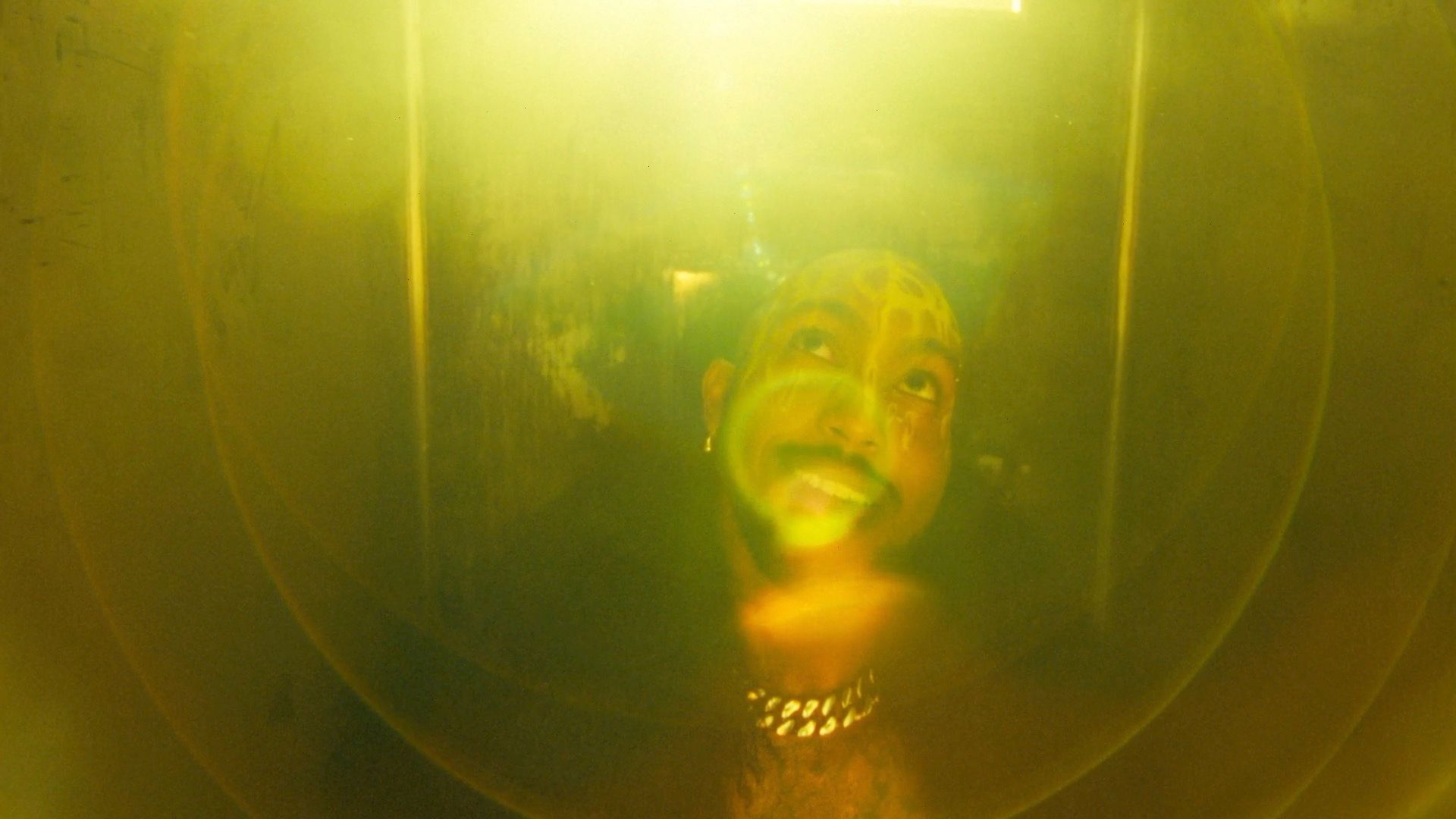
ML: You feel like a criminal. We talk about people’s shame around talking about sex, but we have shame, too, even if you can intellectualize past it. If you get a post removed, it still hits you. As a filmmaker you have to be a very empathetic person, because you're dealing with cast and crew every day. I have an instinct to protect the people around me – I don’t want them to feel that shame, either. If it's hitting me, then how is it going to hit that 23-year-old performer who is taking a big risk?
EL: When we are contacted by young people who want to get into this industry, as a company we have a process of getting to understand who they are. We all know that there are pornographers who are out luring in young people. We do the opposite. We have long conversations where we explain that if you do this work, those images will be out there forever – and everyone is going to find out. There is no such thing as anonymity in pornography. I ask, "Have you talked to your mom about it?" I know that if they have gotten to that level, then they are serious about the work. I want the performers to feel proud and be able to share it.
ML: I've had actors show our work to their parents. I love it. I'm like, “this is the future!”
VC: Speaking of family dynamics, do you guys remember your first encounter with pornographic material? Usually it's a parent's or relative's stash, it seems.
EL: I was around 12 or 13 and it was at a pajama party with five girls. The parents were gone, and first we watched the regular movie and then she showed us the VHS tape that she had found in her father's secret drawer. I can remember the excitement and anticipation! But I wasn’t impressed with the video itself. Then I experienced it on DVD with a boyfriend when I was a little older – an open-minded Swedish liberal girl wanting to learn about sex. But it wasn’t until I came across Candida Royal, a director who was making films from perspectives that were female, gay, et cetera, that I thought, “Wow, this is interesting. Now I'm connecting.”
VC: It's interesting that for a lot of people it starts as a social experience, with friends. And that the medium – VHS, DVD – is part of the memory.
ML: I think I probably found my dad's VHS’ and watched them with my sister, or with friends, just laughing. To contextualize, I grew up in LA and my dad lived in the Valley. And in the Valley in the 1990s, literally everyone lived down the street from a porn house. Porn companies would just rent them all over the city, as locations. They were always at the end of a cul-de-sac and there would be 20 nice cars out front and then at the end of the day the driveway would be empty. Porn was a present part of the culture. You had some understanding of what was happening behind those doors, but you didn’t know exactly. There was this curiosity about that energy on the other side.
VC: Your first encounters were with video though, not print? Asking as someone who makes print magazines!
ML: Oh, we totally had Penthouse or Hustler that everyone passed around. Playboy was a bit boring.
VC: And the most influential and visible. I don’t know any good magazine editor who isn’t obsessed with the golden age of Playboy. No platform that big would pair imagery explicitly intended to arouse with serious writing today the way they did in its heyday. I wonder if that’s more evidence that we have regressed?
ML: Of course, my friends and I talk about porn all the time. It's not an obsession – it's just part of who you are. To not acknowledge someone’s sexuality is to overlook a very big part of their personality and who they are and what makes them move and think and tick and express themselves in intimacy.
EL: It’s a part of life, literally. I am here because two people had sex. Porn is a genre that helps adults to explore that. We change our tastes, because all of this is fluid. Some days you want one thing, other days you want another. In some parts of your life you're into one thing and then you evolve and get into another thing. What is so wonderful with cinema is that you can get into a whole different world with its own characters and start understanding them and how they desire and relate to each other. That makes you empathize and understand the world outside your own.
Credits
- Text: VICTORIA CAMBLIN
- Images: Matt Lambert
- Behind the Scenes Photography: Vincent Tiberius
Related Content
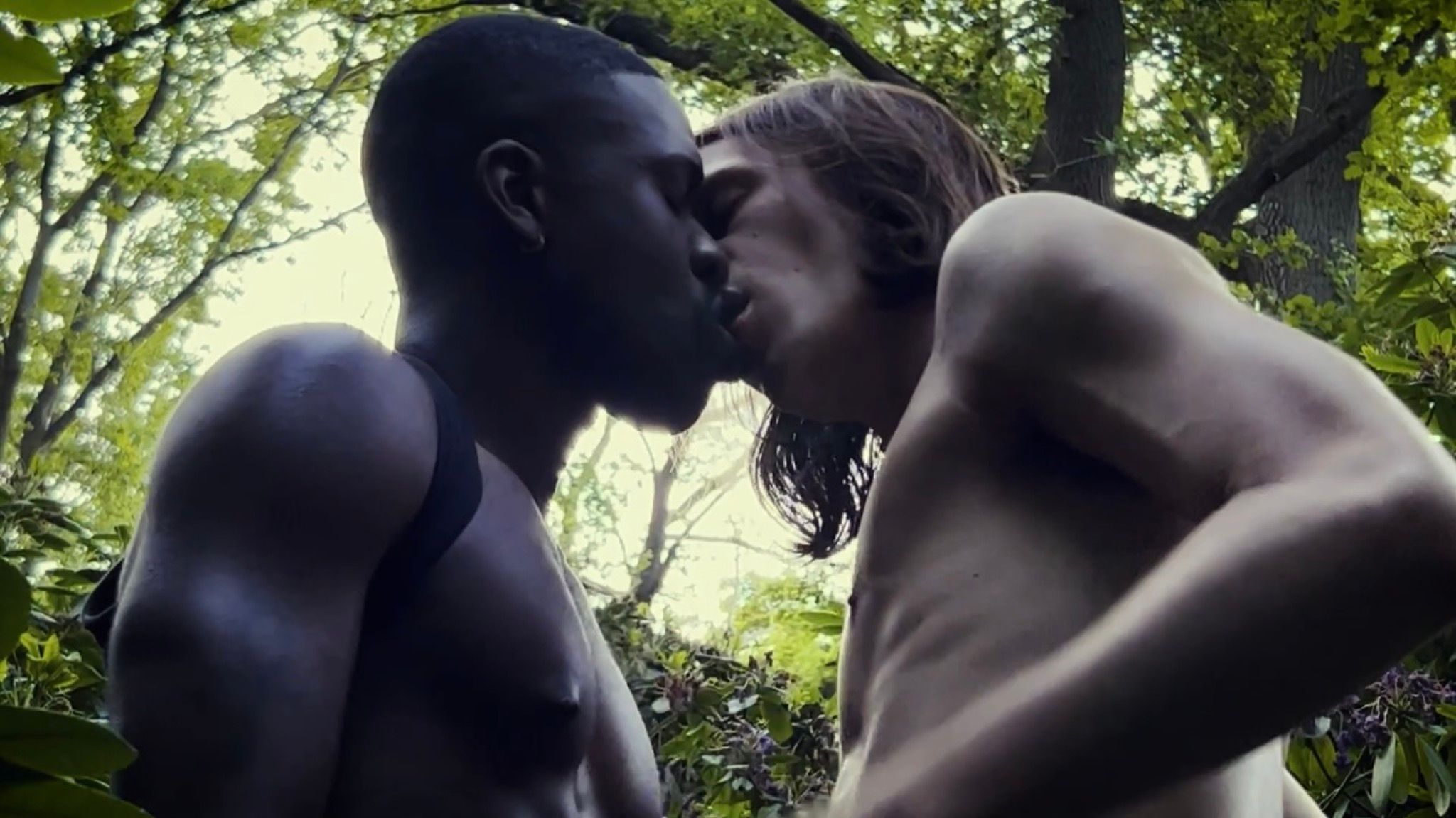
Cruise Centennial: MATT LAMBERT x LUDOVIC DE SAINT SERNIN for Pornhub
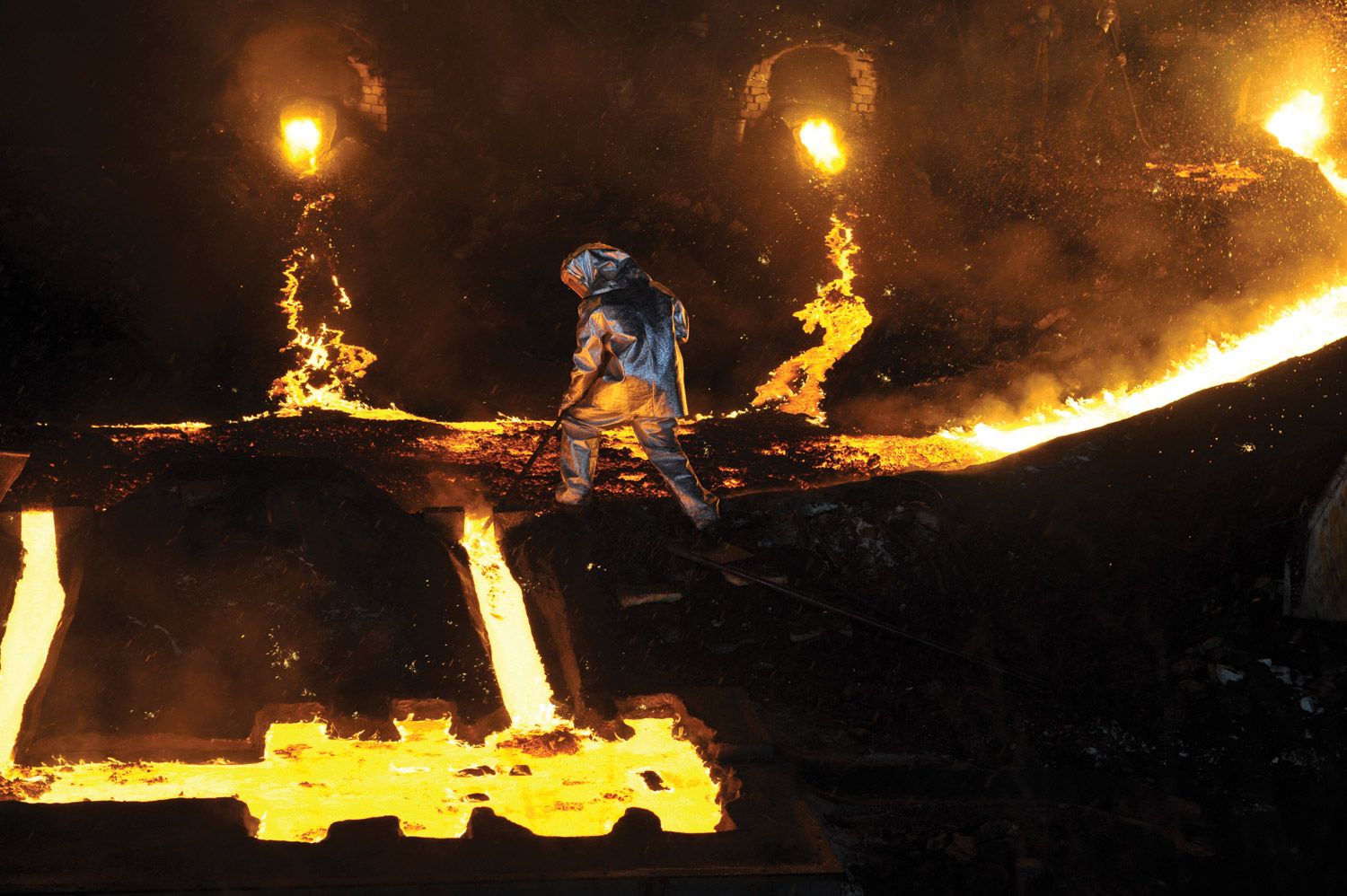
MATTHEW BARNEY’s Spiritualism of Death and Rebirth
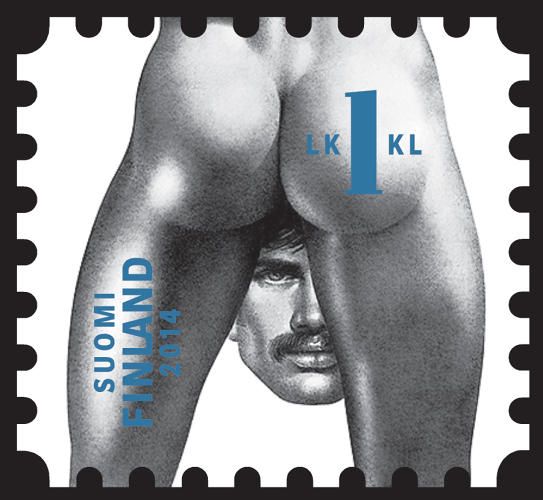
Leather Gloves and Bubble Butts: Finland Just Created the Gayest Stamp in the World
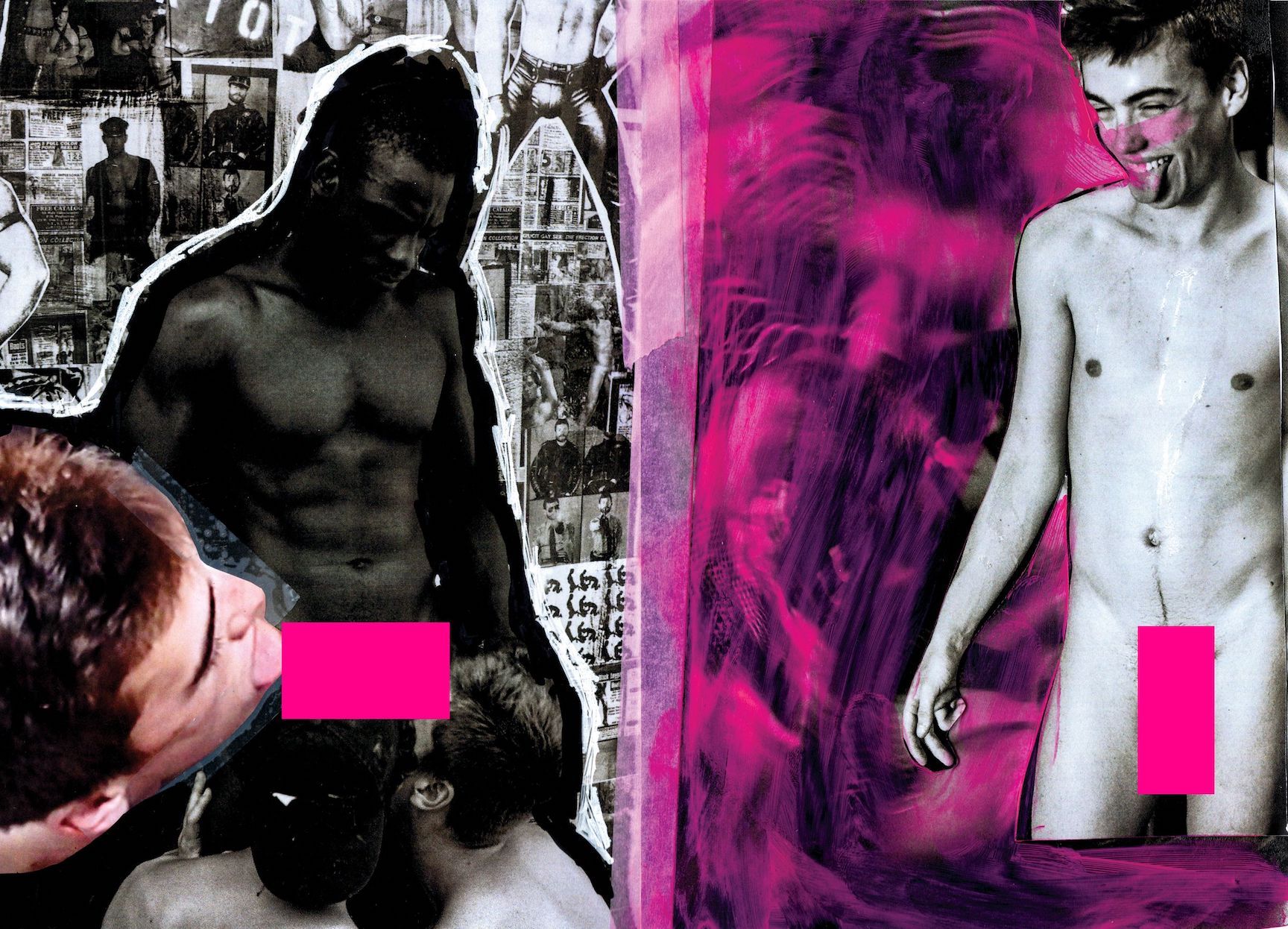
MATT LAMBERT: Pleasure Park
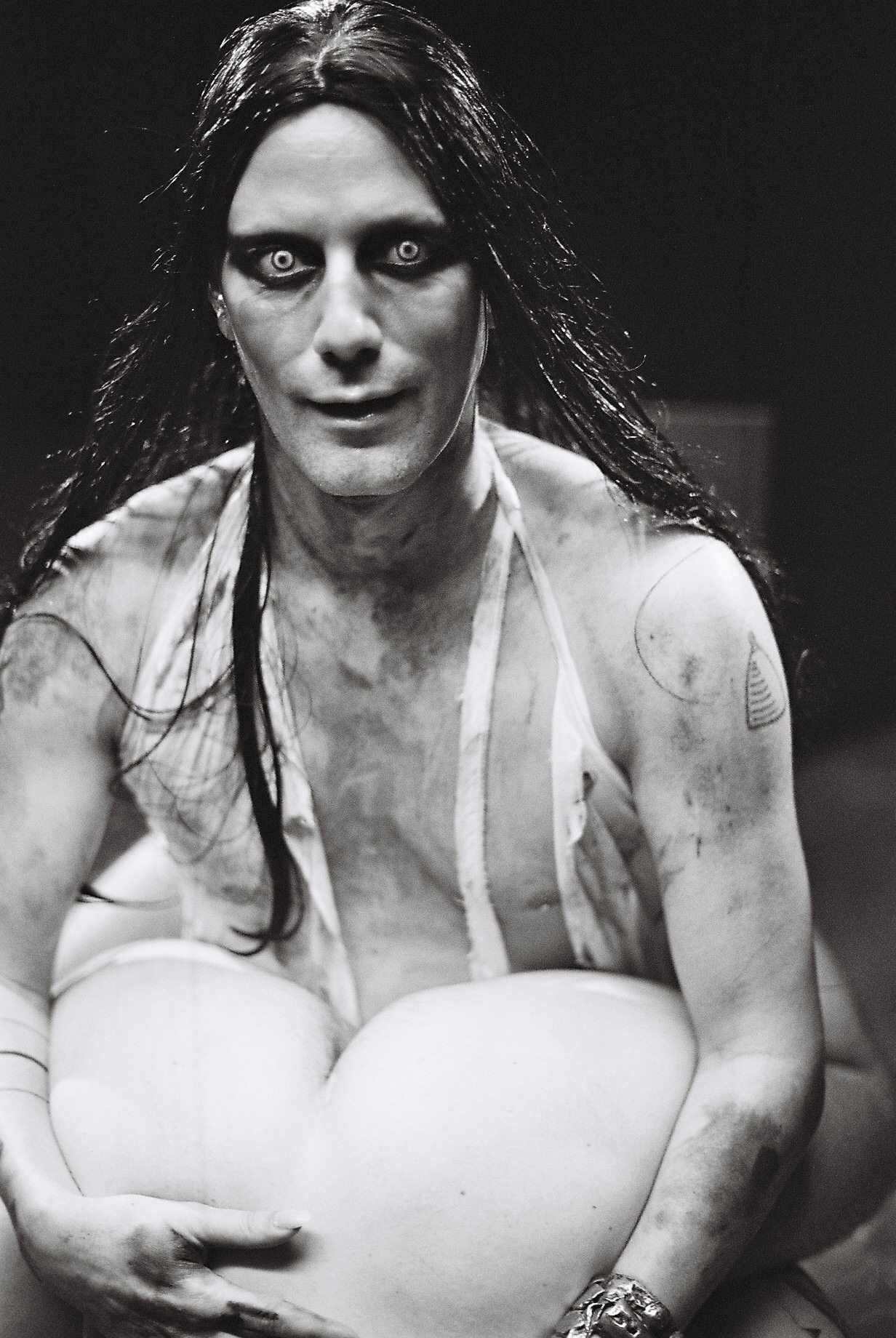
Extremely Behind the Scenes: MATT LAMBERT’s “BUTT MUSCLE” Zine for Rick Owens
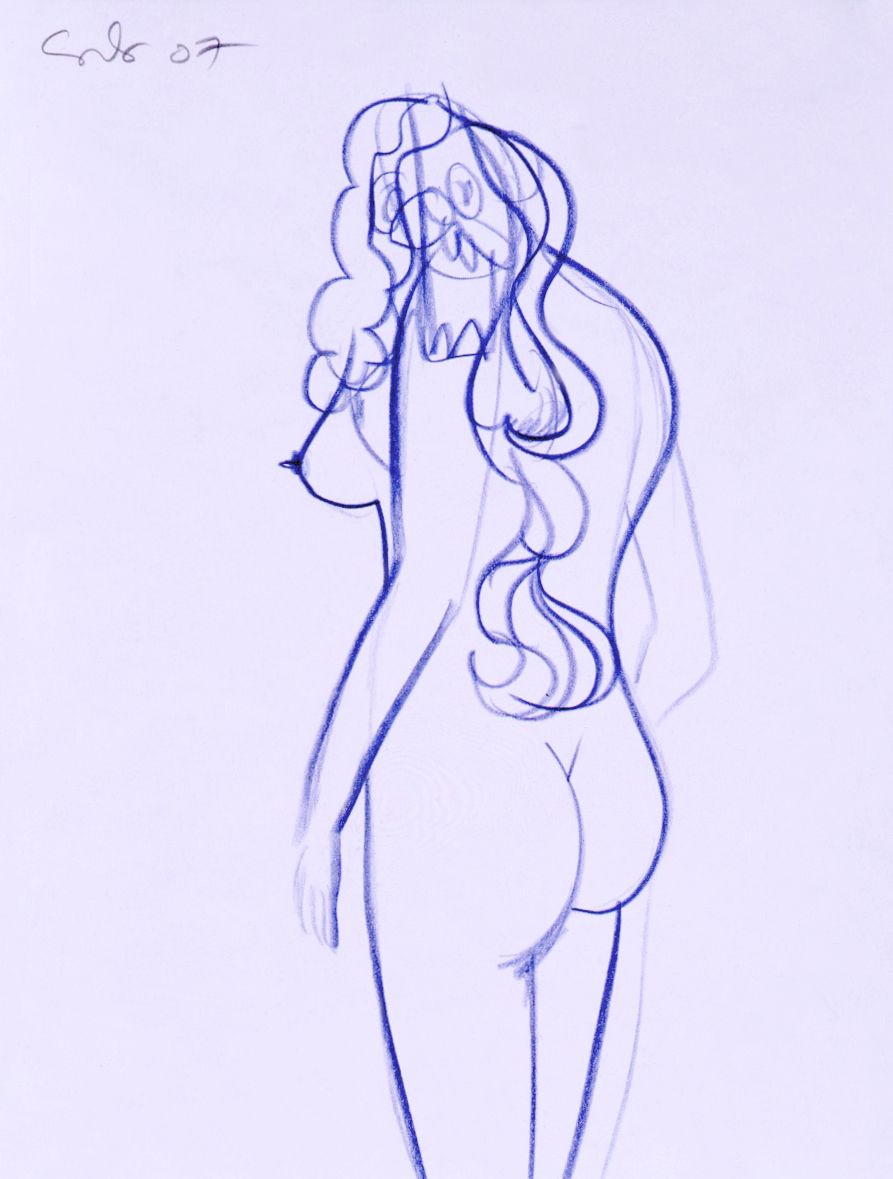
“The Nakeds”: Exhibiting Nude Drawing in an Era of Digitized Sexuality
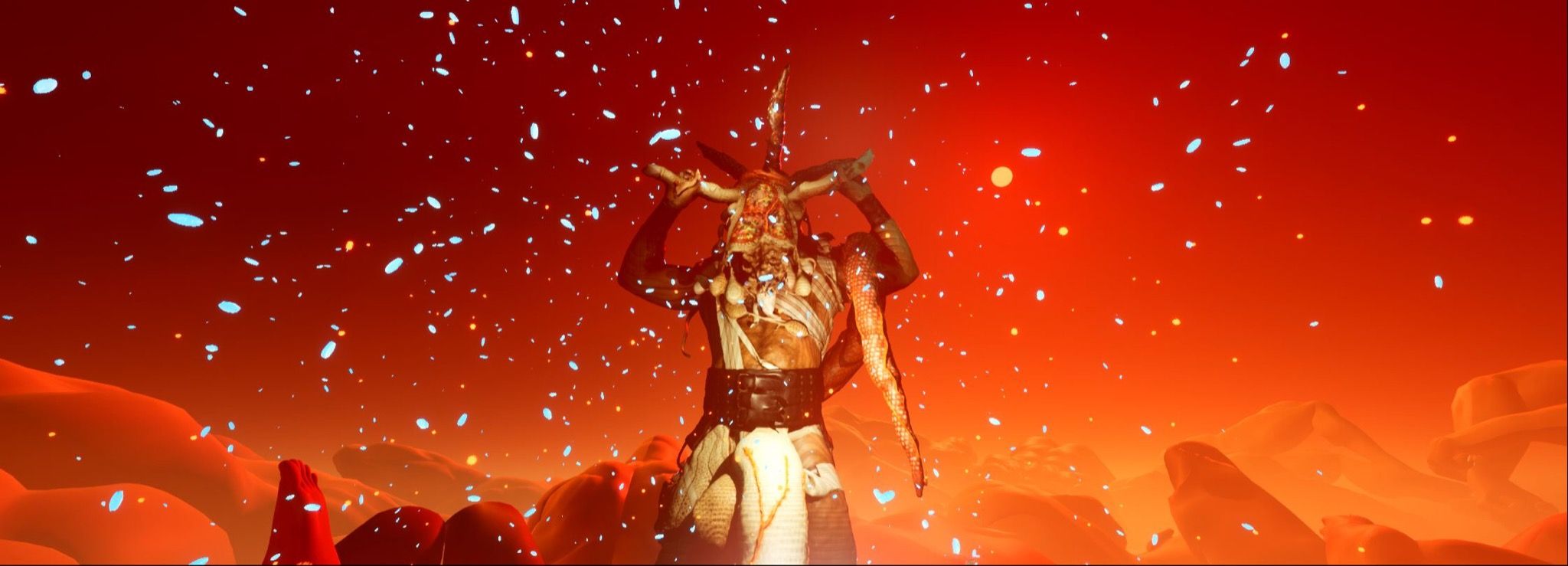
“Punk Metal, Babes”: ENRIQUE AGUDO Explores Identity, Sexuality, and Mythology in VR for a Digitized Tribeca Film Festival

Cognitive Capitalism: NEIDICH, DENNY, POPESCU, HARNEY and NDIKUNG at the SFSIA Berlin